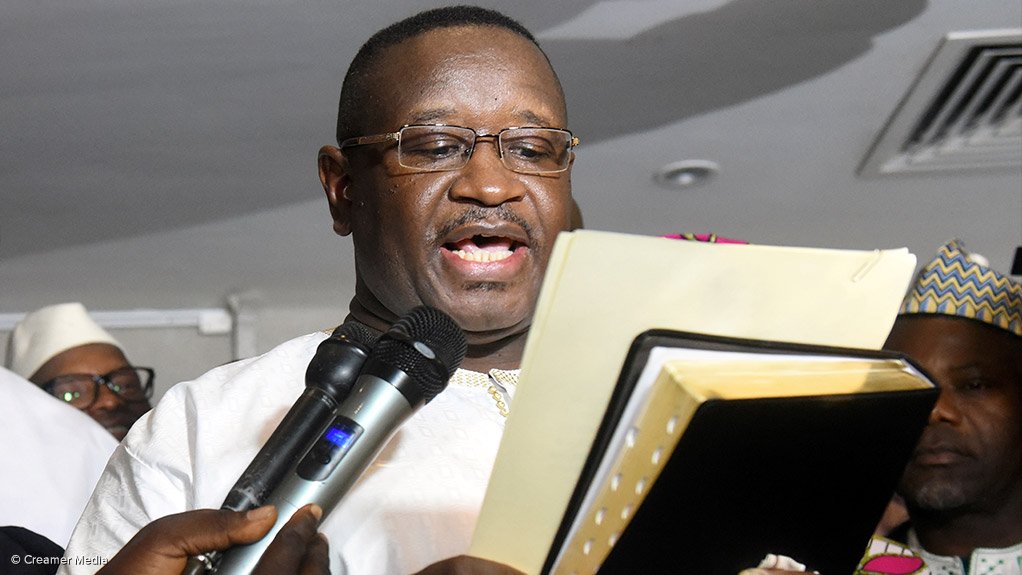Sierra Leone's new president, Julius Maada Bio, on Thursday called on the rival he defeated in an election run-off to drop a legal challenge against the result, and hinted he might offer him a role in government.
Bio was declared winner late on Wednesday with 51.81 percent of votes and was sworn in hours later, but the ruling All People's Congress (APC) candidate, Samura Kamara, who polled 48.19 percent, said the vote was marred by fraud and he would challenge the result.
"I'll very much encourage him to move away from that path and come," Bio told Reuters in an interview.
"He is a resource. He has the expertise and the experience. And I think we can put those to work in addition to all that we have to make sure that Sierra Leone is a better place."
Though he stopped short of saying so, Bio's remarks suggested he sought to bring Kamara, a former foreign affairs minister, into his government in order to placate him.
While he won the presidential poll, in a parliamentary election held at the same time, Bio's Sierra Leone Peoples Party won only 47 of the 132 seats. Kamara's APC got 67, a slim majority.
"There are certain institutional restraints that are not just going to let me do things the way I want to do them," Bio said. "This is not a military government and I do acknowledge that and accept the limitations."
Bio briefly ruled Sierra Leone as head of a military junta in 1996. He declined to comment on accusations of abuses by that junta, which was accused of executing soldiers from the previous regime, saying he had addressed this in the past.
Interviewed later by Reuters, Kamara also sounded conciliatory, though he declined to say whether he would work with Bio, and insisted the litigation would go ahead.
But he recalled when he had briefly worked with Bio, when the latter was head of the junta.
"Julius Maada Bio and I have worked ... together," he said, adding: "I have a passion to serve Sierra Leone at any time."
The vote to replace Ernest Bai Koroma, who could not run again for president due to term limits, was largely peaceful - a relief for a country of 7-million people which suffered a civil war in the 1990s that was fuelled by the diamond trade and notorious for its mutilations and drugged-up child soldiers.
But Bio will have to work fast to reverse years of economic decline. Just as Sierra Leone was booming in the early part of this decade, the world's deadliest Ebola epidemic and a global slump in commodity prices, particularly for its main export, iron-ore, torpedoed the economic recovery.
Bio said he would seek to make Sierra Leone less reliant on natural resources, investing instead in "human capital" - in particular by introducing universal free primary education.
"You ask a Sierra Leonean 'what do we have?', they talk about diamonds, gold. They've never seen it, never benefited from it," he said.
"We have to, as a state, be responsible to make sure that those who can't afford it at least can have the basic education."
EMAIL THIS ARTICLE SAVE THIS ARTICLE
To subscribe email subscriptions@creamermedia.co.za or click here
To advertise email advertising@creamermedia.co.za or click here











